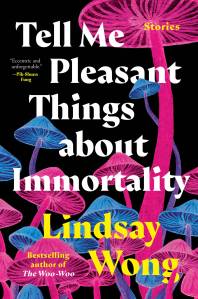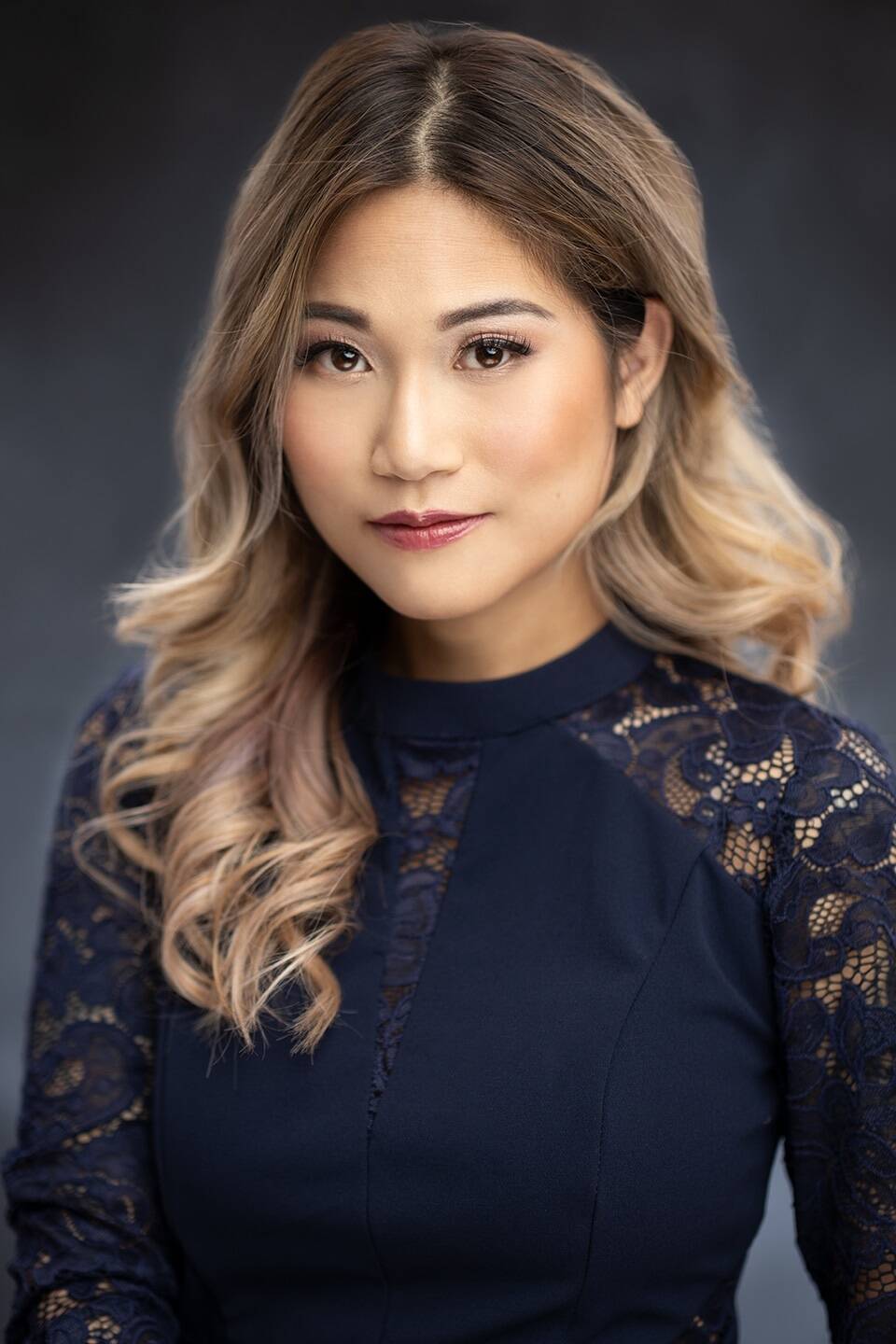Summoning ghosts Author of the acclaimed The Woo-Woo now offers a collection of body-horror stories, about women who ‘haunt and are haunted’
Read this article for free:
or
Already have an account? Log in here »
To continue reading, please subscribe:
Monthly Digital Subscription
$0 for the first 4 weeks*
- Enjoy unlimited reading on winnipegfreepress.com
- Read the E-Edition, our digital replica newspaper
- Access News Break, our award-winning app
- Play interactive puzzles
*No charge for 4 weeks then price increases to the regular rate of $19.00 plus GST every four weeks. Offer available to new and qualified returning subscribers only. Cancel any time.
Monthly Digital Subscription
$4.75/week*
- Enjoy unlimited reading on winnipegfreepress.com
- Read the E-Edition, our digital replica newspaper
- Access News Break, our award-winning app
- Play interactive puzzles
*Billed as $19 plus GST every four weeks. Cancel any time.
To continue reading, please subscribe:
Add Free Press access to your Brandon Sun subscription for only an additional
$1 for the first 4 weeks*
*Your next subscription payment will increase by $1.00 and you will be charged $16.99 plus GST for four weeks. After four weeks, your payment will increase to $23.99 plus GST every four weeks.
Read unlimited articles for free today:
or
Already have an account? Log in here »
Hey there, time traveller!
This article was published 28/02/2023 (1004 days ago), so information in it may no longer be current.
Which is scarier: dying, or living forever?
Tell Me Pleasant Things About Immortality, the new collection of “immigrant horror stories” from Lindsay Wong, makes a compelling case for the latter.
Book launch preview

Lindsay Wong’s Tell Me Pleasant Things About Immortality
● Thursday, March 2 at 7 p.m.
● McNally Robinson, Grant Park location
Jenny Heijun Wills will host an author Q&A followed by a book signing
● Livestream and playback on McNally Robinson’s YouTube channel
In the title story, a woman reaches 380 years old after being one of the only ones to successfully eat the Si Chi Hua, or Night-Blooming Deathlily, a toxic flower that will either kill you or allow you to live forever. Trouble is, she’s quite literally falling apart. Alive, technically, but rotting.
After all, the deathlily never promised eternal youth.
Published in February via Penguin Canada, Tell Me Pleasant Things About Immortality comes as the followup to Wong’s critically acclaimed memoir, The Woo-Woo: How I Survived Ice Hockey, Drug Raids, Demons, and My Crazy Chinese Family, which was a Canada Reads finalist in 2019, and her 2020 YA novel, My Summer of Love and Misfortune.
This time out, Wong, 35, wanted to write short stories about women, mostly, who “haunt and are haunted.”
Blending horror, the supernatural and mythology, the collection’s 13 tales drip with ink-black humour — “my eyeballs are red and sunken,” says the 380-year-old woman, “like twinkling rat eyes or what Vogue China calls ‘unexcavated rubies’ — and are populated by a colourful cast of characters, such as the internet-order bride who invites the apocalypse to middle America. Or the exotic dancer who possesses her killer. Or the people-eating fox spirits posing as San Francisco sorority sisters. Or the hissing, smack-talking Grandmama Wu, back from the dead with an appetite for eating hair and absolutely annihilating her grandchildren’s bullies. (This story also contains one of the funniest lines of dialogue in the whole book.)
“I wanted to write a book about the immigrant experience, Asian diaspora especially,” Wong says over the phone from Toronto, where she is doing press for the book. Originally from Vancouver, Wong calls Winnipeg home these days; she teaches creative writing at the University of Winnipeg.
“We tell ourselves stories to live, but for women of colour and marginalized people, we tell ourselves stories to survive. We can’t survive without family mythology, we can’t survive without family secrets. And so much of it is carrying that inherited trauma and that pain, I think — especially woman’s pain, that’s related to our bodies falling apart, and our youth, and our vanity, and our worth, as women and as immigrants.”
SUPPLIED Tell Me Pleasant Things About Immortality comes as the followup to Wong’s critically acclaimed memoir, The Woo-Woo: How I Survived Ice Hockey, Drug Raids, Demons, and My Crazy Chinese Family.
Old anxieties are current anxieties. The terror of aging, for example, is embedded in our society, with whole capitalist systems built around it. “I don’t know if this happened to you but, when I turned 30, on my Instagram feed, I started getting ads for Botox and Juvaderm,” Wong says. (Yes, it absolutely happened to me.) Wong’s use of body horror throughout the book is wry, and intentional.
“I think, as women, when we write horror, we’re not supposed to talk about our bodies,” she says. “We’re not supposed to talk about how we stink, or flatulence, or, you know, a diarrhea joke. And so, for me, I think that became a starting point. Especially looking at it from an Asian-Canadian or Asian-American lit point of view, because we’re always talking about writing where it’s very serious, it’s realistic, it’s full of suffering. I think there’s something refreshing and exciting to look at it from a new point of view, where we focus on the horror, we focus on the grotesque, and not being afraid of our bodies and saying what we think about certain things.”
These stories, then, are about the horrors of living, too — specifically the horrors of living in a body with an expiration date, a body that smells, leaks, bleeds, breaks, decays and betrays. (In the book’s acknowledgement, Wong provides a laundry list of nervous ailments she suffered while writing it.)
“I think it’s really relatable — we can’t control our bodies, we can’t control what they’re doing, and I think I get more aware of that as I get older,” she says. “I was always a nervous child and I was always thinking about, ‘Why can’t I say something like this? Why are we so obsessed with our youth?’ Especially, I think in Chinese culture, there’s always this emphasis on looks. A low forehead means someone has low IQ. Or they have small ears, they have a lucky life. So there’s always that idea of your physical appearance can dictate your future, and I think that’s something I really wanted to explore.”
“When we leave a country, we can’t escape these secrets, and these histories and memories, and we’re always carrying it with us.”–Lindsay Wong
The most striking example is the story The Ugliest Girls. Our narrator, Chicken-Face, is sent away from her village to have her darkest, most shameful memories drained from her by blood-red leeches placed on her tongue. The leeches are then sold as delicacies to the rich so that they may feast on her pain. Chicken-Face and the other ugly girls assigned the same fate are told they are supporting the economy.
“When we leave a country, we can’t escape these secrets, and these histories and memories, and we’re always carrying it with us,” Wong says. “I wanted to look at what happened when you carry that, and leeches extract that pain, and they’re sold for profit to a Western audience — that relates to the idea of BIPOC trauma and how women of colour are often looked at and scrutinized and studied. Our pain is valuable. We’re taught that we’re only valuable by our trauma, or how we look.”
Many of the book’s stories are told in the first person, which was also an intentional choice.
“I think there’s something special about the first person and it really allows you to inhabit a narrator, almost like a ghost,” Wong says. “You get to be inside them and let them talk to you, almost, or you get to control them. You’re possessing the story.”
jen.zoratti@winnipegfreepress.com

Jen Zoratti is a columnist and feature writer working in the Arts & Life department, as well as the author of the weekly newsletter NEXT. A National Newspaper Award finalist for arts and entertainment writing, Jen is a graduate of the Creative Communications program at RRC Polytech and was a music writer before joining the Free Press in 2013. Read more about Jen.
Every piece of reporting Jen produces is reviewed by an editing team before it is posted online or published in print – part of the Free Press‘s tradition, since 1872, of producing reliable independent journalism. Read more about Free Press’s history and mandate, and learn how our newsroom operates.
Our newsroom depends on a growing audience of readers to power our journalism. If you are not a paid reader, please consider becoming a subscriber.
Our newsroom depends on its audience of readers to power our journalism. Thank you for your support.






